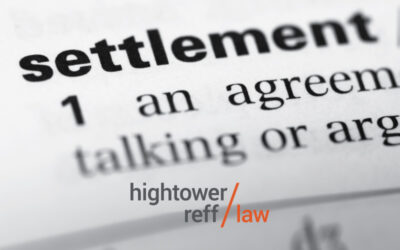As attorneys, we strive to present the best case possible for our clients. In order to build the best case, we often need to gather evidence to support our position. While a great deal of evidence is presented to the court through oral testimony, documents called exhibits are very useful tools in the courtroom.
During your divorce or modification case, we will work with you to gather the appropriate documents and history of your marriage and custody case to help present the most relevant facts to the judge. We will also help you determine what is not relevant.
Oral testimony can be highly subjective. Without further evidence, opposing parties may say the exact opposite of each other in a classic “he said, she said” scenario. Exhibits can be used to support or oppose a witness’s testimony. For example, if Parent A says the child missed ten days of school and Parent B says the child missed only one day, it is hard to know who is telling the truth. However, if Parent A has a printout from the school documenting all ten absences, this exhibit supports the testimony, leads to credibility, and makes it more likely the judge will believe Parent A.
While attorneys can draft questions to guide oral testimony, we need our client’s help in identifying and locating valuable documents that can help the case. Helpful documents might include school records, medical records, DHHS reports, police reports, photographs, and text message screen shots to name a few. If possible, make sure the document is dated and identifies who created the document. While you are gathering the documents in your possession, your attorney can gather documents from the opposing party through a process called discovery.
When gathering your documents, keep in mind that some documents are more helpful than others. For example, if a document includes statements by a person who is not a party to the case, that person may need to come to court to authenticate the document or the document may not be considered by the court as hearsay. Even if you think a document might be problematic, don’t throw it out, give it to your lawyer to help make that determination. Remember, lawyers don’t like surprises. Be sure you have not only the documents that support your case, but also any harmful documents so your attorney can prepare the appropriate defense.
Despite all the technological advances, pieces of paper are often the most useful pieces of evidence. If you are considering legal action, now is the time to put on your lawyer hat and start gathering documents.
At Hightower Reff Law, at your initial consultation and throughout the process, we will discuss in detail what documents you should be gathering. We will make sure you understand each step of the process throughout your case.
This article should not be construed as legal advice. Situations are different and it’s impossible to provide legal advice for every situation without knowing the individual facts.
If you need help with a Nebraska or Iowa Divorce case, contact Hightower Reff Law today and come visit with one of the attorneys at the Omaha office.




